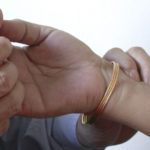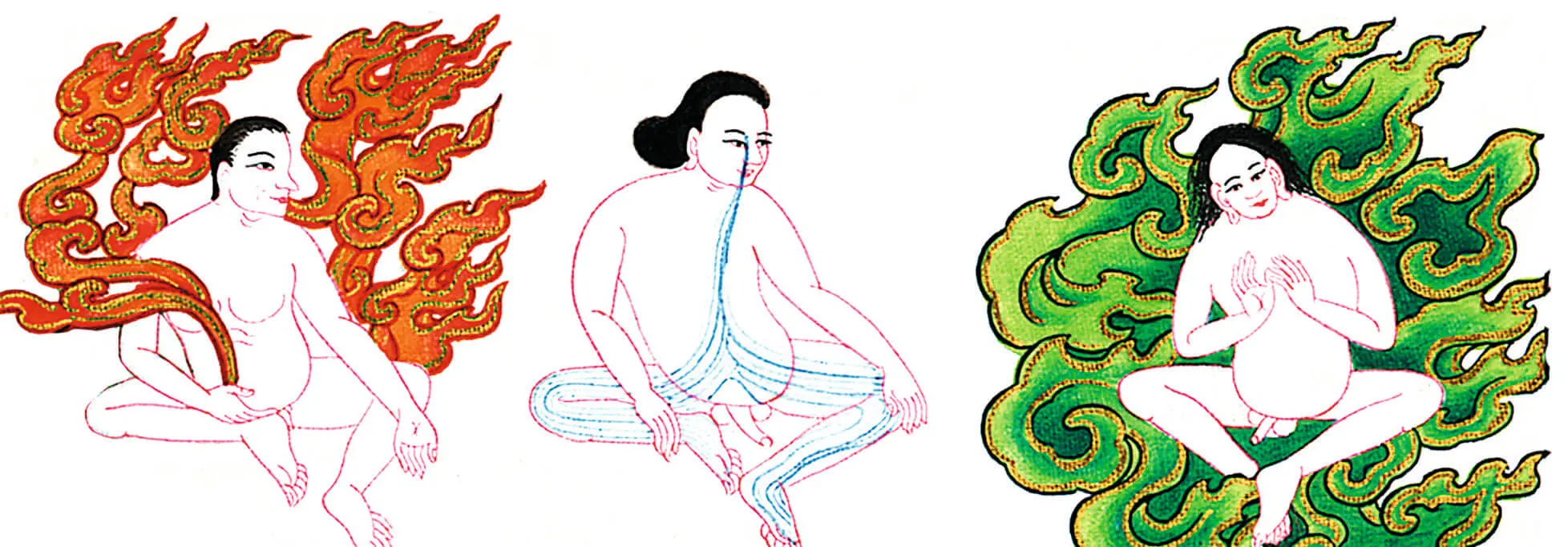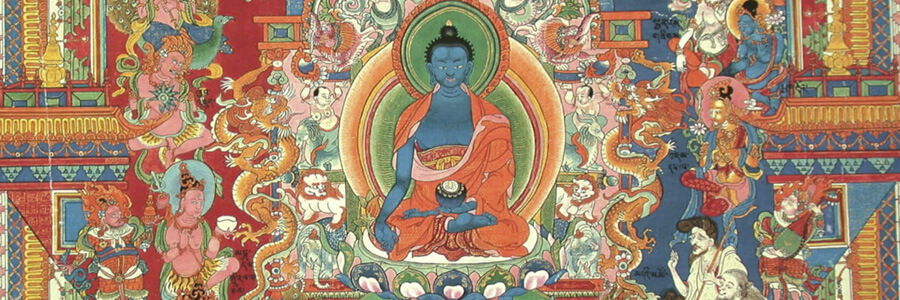The Tibetan Medicine
The Three Humors
The mind is the background, the pillar of life, the hidden power, the essence, and the covering of the body which provides the base for the physical body to exist. The humors then build the body constituents and develop the system of the body and its functions, and are the basis of the theory and practice of Tibetan Medicine. The theory describes the three principles of the humors and their threefold causes (mental predisposition, elemental energy and physical cause) and their functions.
The Three Humors
Physiology of the humors and constituents
Consequently to the unification of the mind and matter, the mind becomes the cause of the manifestation of the three humors: attachment is the precondition for rLung/Wind humor, hatred for mkhrispa/Bile, and closed-mindedness for Badken/Phlegm humor. These three energies arise respectively from the mental predispositions of the mind and become the psychic cause of the three humors.
The Three Humors
The Wind humor
The Wind humor is the breath, life force, and energy of the body/mind. It is pervasive and circulates inside and outside of the body. It manifests from the mind and the subtle wind energy and it is the source of respiration, movement, strength, and the power of the body/mind. It especially governs the main function of the mind and the wind systems.
The Three Humors
The Bile humor
The general Bile humor is called mkhrispa (pronunciation Tripa) in Tibetan. It means ‘burning’ and it is derived from the Tibetan word snod-mkhris, which is the name of the gall bladder, because Bile disorders generally manifest from malfunction of the gall bladder organ.
The Three Humors
The Phlegm humor
The Phlegm humor is called ‘Badken’ in Tibetan, Bad means ‘earth‘, and kan means ‘water‘. It derives from the two elements of earth and water. Earth provides the quality of heaviness, and water provides the qualities of humidity and coldness. Both produce the qualities of coldness, wetness, binding and heaviness. The cool and wet nature of the Phlegm humor opposes the heat of Bile, while its qualities of heaviness and gentleness (smoothness) balance the roughness of the Wind humor. The Phlegm humor controls the Bile heat, infection and fever disorders.











